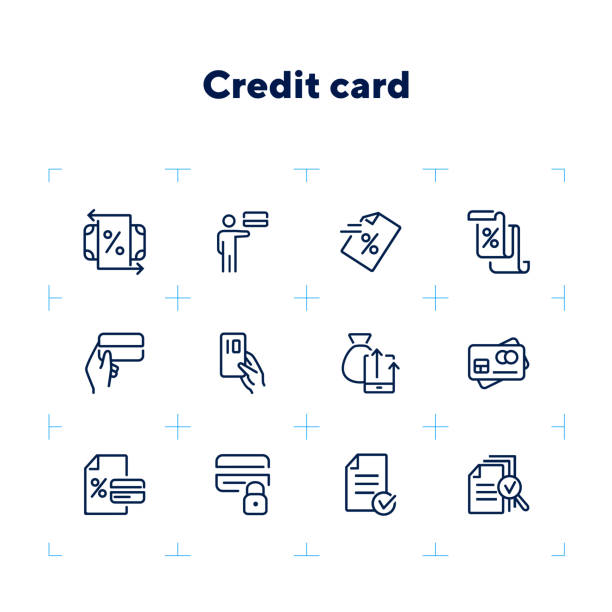Vehicle recalls happen all the time. A manufacturer may find that a certain part on a specific model wears out faster than expected and decides to replace it for all of them. Sometimes, the problem can be something more urgent and dangerous, like the exploding tire recalls of the 90s.
But you have to agree that these are interesting times we live in. Thanks to technology, we don’t take our modern cars to the dealership to fix mechanical problems.
It’s no longer just about mechanical components, like the engine and transmission – drivers now have to worry about the software running the various components in their car.
Hardware or software, dealers and automakers typically send regular email or mail alerts to their customers in the event of a safety recall, but the logs aren’t always up to date and it can be easy to miss a letter sent in the mail.
Fortunately, you can go online and easily find out if your vehicle is subject to a recall. That’s how:
Find your VIN
First, find the unique 17-digit Vehicle Identification Number, or VIN, for short.
You can find the VIN on most vehicles by standing outside the front windshield and peering into the lower corner of the dashboard. It can be a little hard to see, so look carefully. Some cars will also have it stamped on an emblem on the driver’s side door jamb.
If you cannot locate your car’s VIN, especially if it is older, it may be easier to check the vehicle title or registration or consult your insurance documents.
Update your registration
To make sure your vehicle registration is up to date, we recommend that you visit the state automotive department website and check your VIN or license plate.
Alternatively, you can also look at the registration sticker in the corner of your license plate and see if the year marked is running. If you are not up to date, you may need to pay associated fees and update documents. Once completed, your car manufacturer should have no problem contacting you.
Remember: Not all states accept driver email information. Therefore, the auto department and auto manufacturers rely on regular mail, which makes it doubly important to keep the registration for the safety of your car.
Use the NHTSA recall checker tool
Once your VIN is ready, visit the National Highway Traffic Safety Administration (NHTSA) Recall Search Page. Enter your 17-character VIN in the search field provided and the results will show the number and type of safety warnings that apply to your specific car. If you’re not getting results, then good news, your vehicle is not part of an ongoing recall.
It is also a good idea to carry out the VIN when purchasing a used car so that you know if you will need to deal with any safety concerns after you acquire ownership. The research tool covers the past 15 years of recalls, so be aware that older vehicles may not generate results from long-standing recalls.
Note: Don’t have your car’s VIN? Instead, try searching for the year, make, and model.
In addition to car recalls, you can also use the NTHSA site to check for recalls on vehicle accessories such as seats, tires, and other car-related equipment.
Important: Just because your vehicle isn’t currently subject to a recall doesn’t mean you won’t get one in the future. To this end, the NHTSA also offers an email notification system if you wish to receive alerts on recalls.
Aside from the NTHSA site, one of the best online destinations to check for safety information on your car is a site operated by the United States Department of Transportation and also powered by the NHTSA.
Safercar.gov is filled with car insurance safety information, including accident ratings, complaints and defects, tire safety tips, safety technology information, automobile news, and child seat guidelines.
Another great resource you can use on Safercar.gov is its Vehicle Manufacturer Information Toolkit. This database has printable fact sheets and because it is powered by NHTSA, Safercar.gov also links directly to the NHTSA’s VIN lookup tool.
Register with Carfax
You’ve seen the fox puppet commercials, but don’t be fooled: Carfax is a powerful ally in protecting yourself and your car. It works as a collection of all of your vehicle’s various logs, including accident reports, service schedules, and recall alerts.
If you register your car with Carfax’s Vehicle Recall Control, you will be notified when your car manufacturer reports a new recall. The platform gets this information directly from automakers, which puts them on the pulse of new service issues as they go public, as well as previous recall campaigns that you may not have solved. Not to mention, you will be able to get a more detailed insight into your vehicle’s history.
What to do if the vehicle is part of a recall
Now, where do you get your car if it’s part of a recall? Recall service work is usually done at your car dealership, so please call to make an appointment. Having your recall number is helpful, but they can also search for recall information through their records.
Recalls can be for potentially dangerous issues, so be sure to schedule your car service as soon as possible. Dealers typically have shuttle services so they can leave the car and get picked up when ready. Your dealer can also arrange to tow your car if the recall is for a serious problem.
And keep in mind that no matter if it’s software or parts, all repair work done on your car due to the recall will be completed for free.





